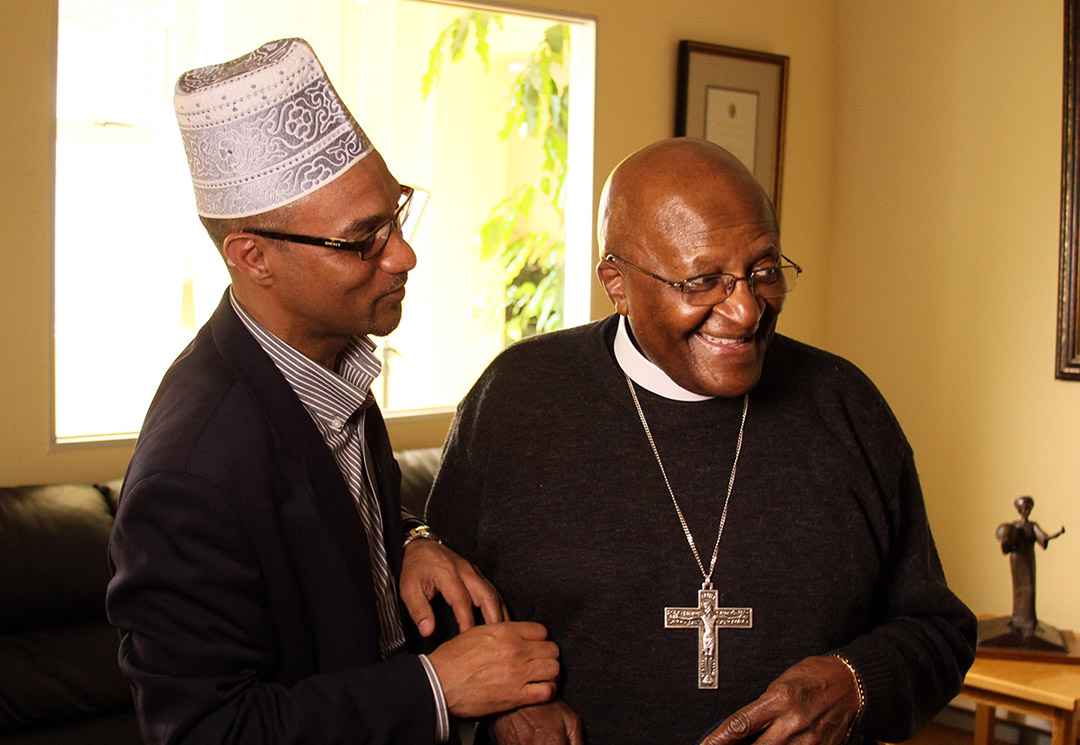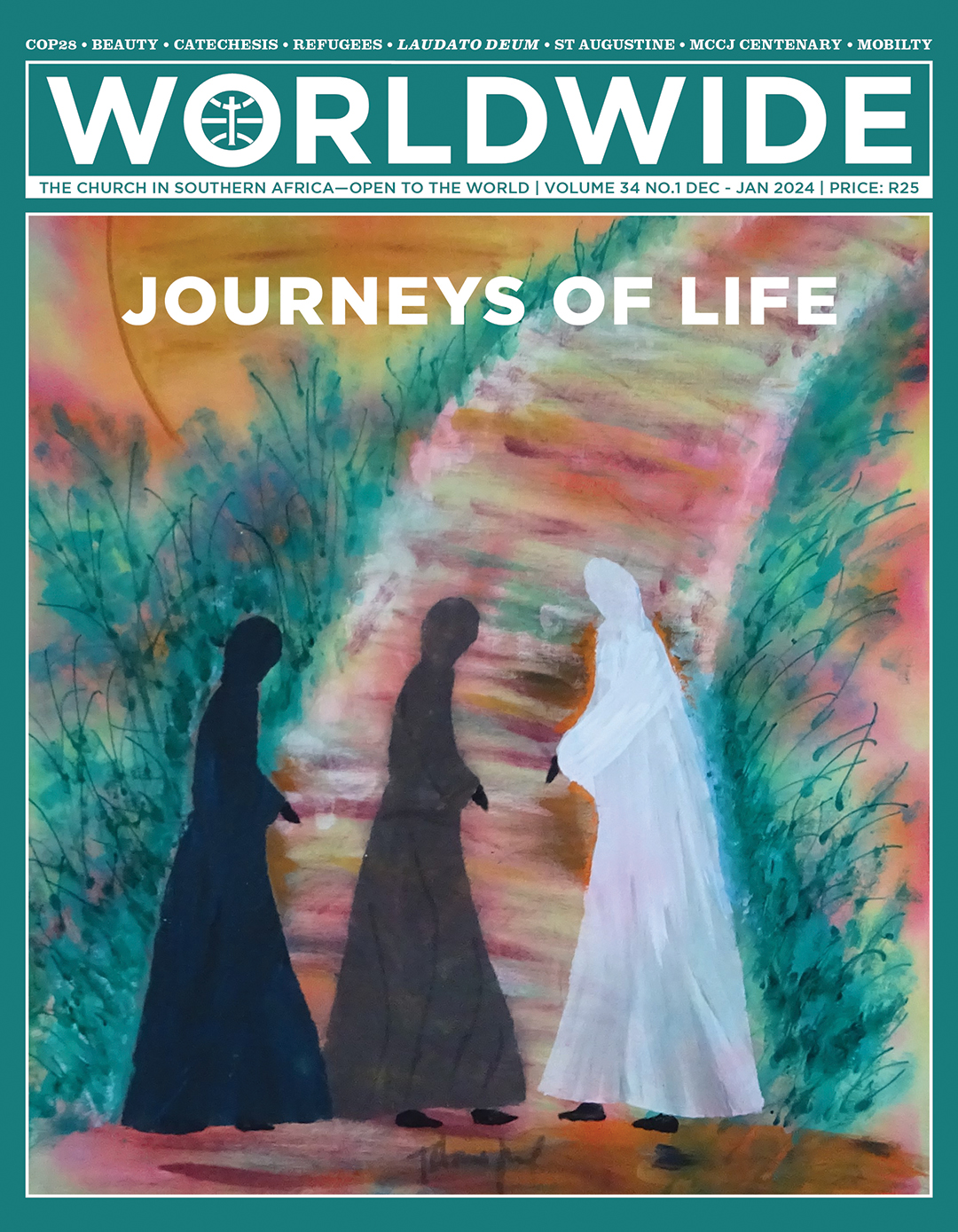
JOURNEYS OF LIFE
The painting on the front cover entitled “The disciples of Emmaus” reflects our journey of hope. Jesus not only walks with us, but gives us the wisdom to perform our ministries and opens our eyes to see Him in the people that we are serving.
FEATURES • INTERVIEW WITH ARCHBISHOP DABULA
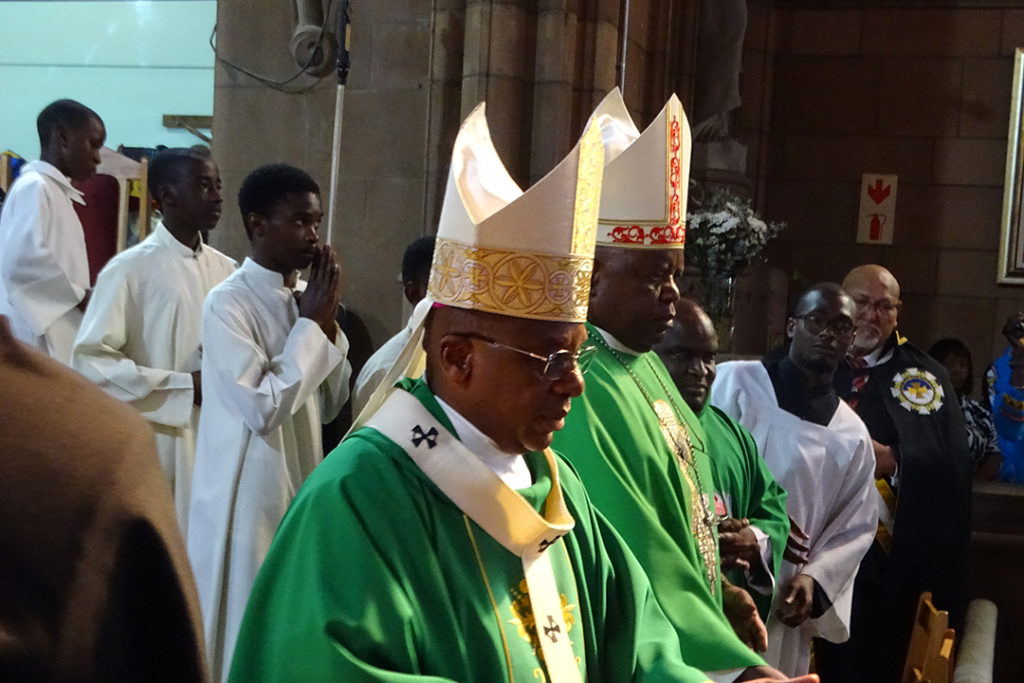
“SYNODALITY IS THE NATURE AND FUTURE OF THE CHURCH”
Most Rev. Dabula Anthony Mpako, Archbishop of Pretoria, returned from Rome, after attending the General Assembly of the Synod on Synodality from 30 September until 29th October 2023. He shares his impressions with Worldwide magazine.
BY Fr Rafael Armada MCCJ | Pretoria
Archbishop, what stood out as most significant in the Assembly?
What impressed me was the method of ‘Conversation in the Spirit’ done in small groups, which made for a very positive exchange among participants. Despite our differences, this prayerful discerning manner, of attentive listening to one another, created a harmonious atmosphere. This method can also be implemented in the archdiocese.
What about the presence of lay people, particularly women, voting in the Assembly…?
The Holy Father invited other participants, apart from bishops, with equal voting rights. At the beginning, some bishops felt disorientated by the presence of women and non-bishops in a synod of bishops. Cardinal Mario Grech, secretary of the Synod, explained that it was a major synod of bishops; however, the Holy Father had the right to invite other friends of the synod, who had participated in previous consultation phases.
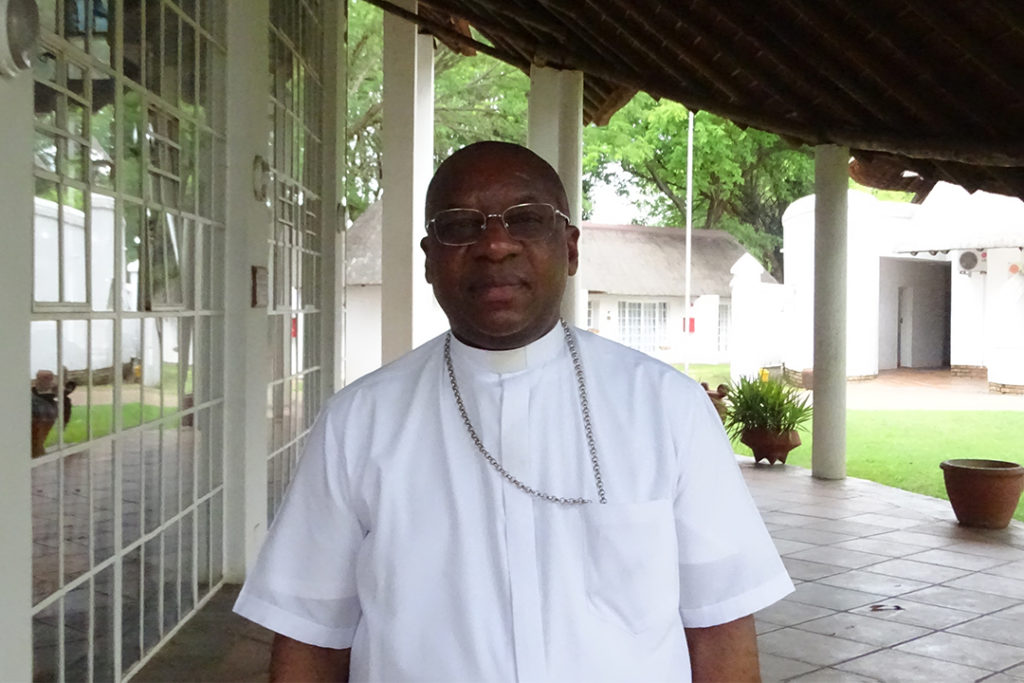
Were there, among the participants, contradictory sentiments of fear and enthusiasm about the Synod?
In the church, there are people who fear synodality. They feel it may change the doctrines, opening up Pandora’s box. ‘If everyone participates and we listen to all views, we may come up with that which does not stand for the principles of the church,’ they say. Some came with fear and suspicion about the whole process, but the majority were positively disposed towards synodality. Those who came with misgivings, ended up expressing: “I think I am converted; I can see the benefits of this method”.
Synodality is not new; it was practised in the early church. Fr Tymothy Radcliffe talked about the Council of Jerusalem and how they discerned together, guided by the Holy Spirit, until they reached a pronouncement to accept the gentiles. Synodality reflects the church as one body, with different members. Vatican II chose the ecclesiology of the people of God; all with equal dignity by virtue of baptism. Synodality is about how to translate that theology into practice in the life of the Church. All people of God must be involved in discernment and decision making at different levels, according to their charisms. Paul VI established the synod of bishops, to implement Vatican II. There is synodality of bishops and the Pope, around decisions taken by the Pope. However, it has not become common practice among the laity yet.
Was communion prevailing or were there groupings?
As in the universal church, in critical issues, there are different positions, reflected in the discussions, but there was a positive attitude towards these differences.
In some issues such as LGTBQ+, particular situations in marriage and polygamy, some minority groups expected a radical change in the church position, but the majority stood for maintaining the doctrine, and looking for ways to show Jesus’ compassion, love and acceptance to those in such situations.
The role of women, including a possible ordination to deaconate seemed to have been a prevalent issue; is the church moving towards giving more responsibility to women?
The role of women in the church was a priority in the report documents from all continents. There was some discussion about women and deaconate, though for the majority, the tradition of the church was still preferred. There was not much emphasis on the ordination of women to the priesthood. What was embraced by all, was the need for women to be given more say, leadership roles, and the exploration of avenues for more significant participation in the life of the church.
The role of women in the church was a priority in the report documents from all continents.
One woman expressed that many women do not want to be clericalized. She was against the idea of ordination if it entails a desire for power associated with priesthood. This leads to clericalism which is what we are trying to dismantle. This was a point of division among women.
Women are also called to participate in the formation of seminarians
Synodality is introducing a new experience that must be appropriated by the church at all levels and institutions, encouraging participation; journeying together; listening to one another and to the Holy Spirit; and discerning what the Spirit is calling us for. The church lost sight of synodality from the Middle Ages until Vatican II. In most people’s minds, the church was the clergy and the religious. Priests were trained to be on a pedestal. If synodality becomes a reality, then the way we train priests must change. Their training must be in contact with normal people’s lives. We are taking young men out of real-life and putting them in an artificial environment. Clericalism is still present in their formation. They go out as priests with a sense of entitlement. The main question is how we change this. Synodality needs to lead to personal and institutional conversion, a new way of being church. Vatican II upheld the traditions of the beginnings of the church. The Holy Father says: ‘What we are doing is nothing new. This is Vatican II. It is what the church is supposed to be.’ All of us need to undergo metanoia.
How to dismantle clericalism and patriarchy which have led to abuse?
These were issues which were brought up from consultations carried out by the universal church. We have looked at them in this first process of discernment by the Magisterium of the church. The synthesis document is an interim document, more discernment and prayerful reflection will be required for this coming year. There are no clear answers to these questions. What is generally accepted is that synodality is the nature and future of the church. The challenge is how to deal with realities such as patriarchy, clericalism, inappropriate formation; insufficient responsibilities for women, and the need for a prayerful reflection in our pastoral council meetings…
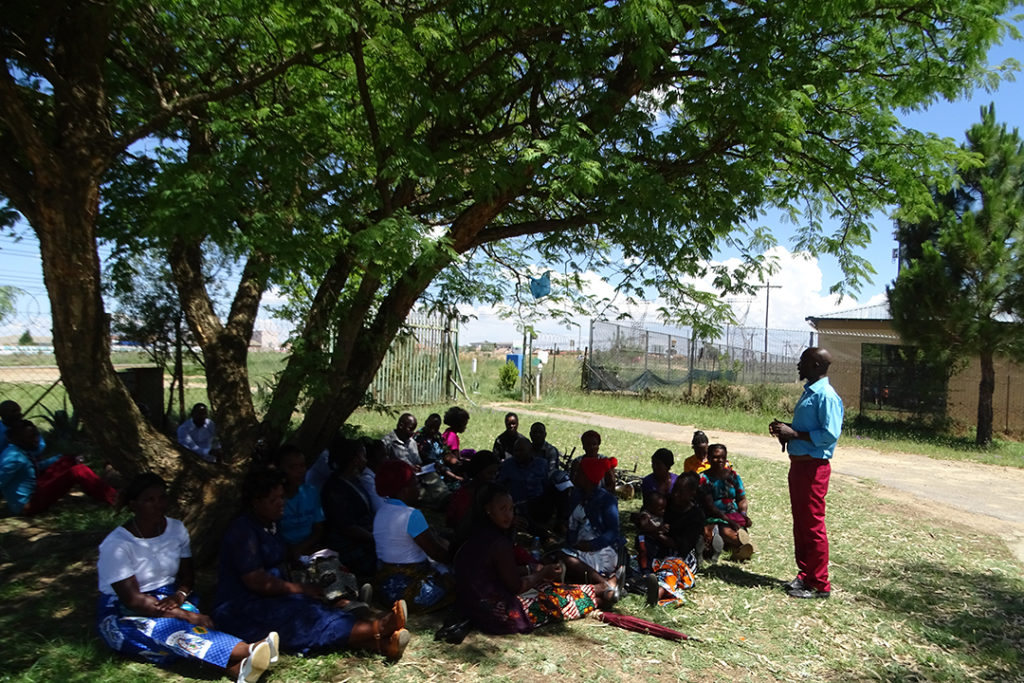
What was inspiring in the synod about the youth and the poor?
There had been a previous synod for the youth. The church takes seriously the world of the youth. This synod assembly put forward the option for the youth, listening and reaching out to them. They want to have a voice and talk for themselves. We need to give them opportunities to bring their experiences into the life of the church. There is a desire to work with the youth, especially when it comes to the digital environment. Some call it the ‘new continent’ where our youth are its citizens and dwellers. We need to minister there and allow the youth to take the mission to that continent.
The option for the poor is alongside the option for the youth. Caritas assumes a very important role in a synodal church which includes those marginalised, not just ministering to them as objects, but as subjects, listening to them. Their situation of suffering challenges us to respond to God’s calling and to be for them. These two options featured prominently in the synodal discussions.
As church, are we having impact in transforming the society?
The church is not the government; we are not in charge of the global economy. However, we can advocate for ways towards the common good. Advocacy for justice was emphasised in the synod, also reaching out to those in need. We must critique the structures, advocate for their change, even within the church. Denouncing can be balanced with diplomacy, leading to more positive results. One has to uphold both, using one more than the other, depending on circumstances.
Are we becoming a synodal missionary church?
One of the paragraphs in the Synthesis document refers to the historical context of missions and how the missionary activity of the church, wittingly or unwittingly, went together with colonization. The word mission, for some people, provokes negative sentiments because of the early missionary activities experienced. This was expressed by many participants. Admittedly, a lot of good was done but maybe, because of the mentality of the time, some damage was also done. Some missionaries confused the Gospel message with their own culture. Instead of seeing the seeds of truth already present, they tried to Europeanise and confuse that with evangelization. That has left some wounds, especially among indigenous communities who feel that their cultures were demonised and their ideas not acknowledged as equal in dignity. Therefore, inculturation is again emphasised. Missionaries coming, for instance, from Europe, have to recognise that mission means dialogue. You need to engage in a process of mutual listening. However, there is still place for missionary work; the whole church is missionary. With the dwindling number of priests in some countries, local churches need to share resources and the quality of doing it has to be synodal.
You are involved in ecumenical initiatives and in interreligious dialogue. How can we work better in these areas, especially uniting forces towards peace building?
Synodality is offering us opportunities to build up more unity and collaboration between different churches. When we engage in a synodal way with different faith communities, we are already modelling to the whole of humanity how to deal with differences in a way that does not lead to destruction, we become a sacrament of salvation for a united world.
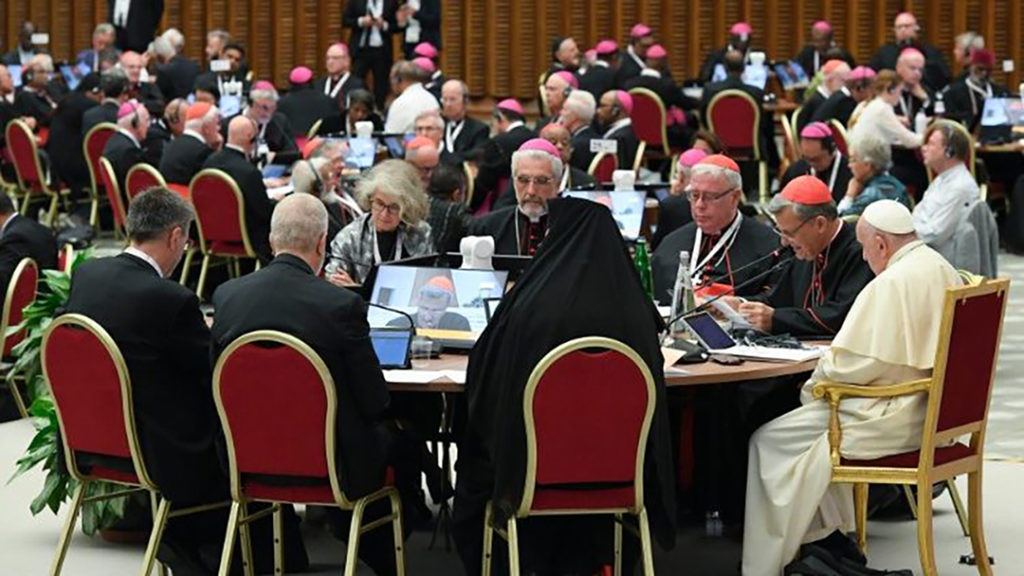
Where is the Church in Africa and in South Africa in this journey of synodality?
When it comes to synodality, Africa is well advanced and a fertile ground because of the culture of Ubuntu or communitarianism. We had small Christian communities (SCC) for many years, pastoral councils which are still canonically optional. Local churches in other parts of the world have not heard of these things yet. We have been doing it for 50 years. In the Pretoria Archdiocese, we have had already two diocesan synods— one called by Arch. George Daniel and the one we recently had —with widespread consultation of the faithful, and discernment on what kind of church we are called to build. With their feedback, we produced a pastoral plan. The diocesan synod process has been implemented in quite a few dioceses. At the level of the SACBC conference, we also had the 1989 pastoral plan “Community serving humanity” preceded by widespread consultation for a number of years; the same occurred with the one launched in 2020. We started six years before, with different phases of consultations.
When it comes to synodality, Africa is well advanced and a fertile ground because of the culture of Ubuntu or communitarianism.
We need to affect change by ensuring the participation of all in discernment and decision making, in prayerful reflection, listening to the Holy Spirit and to one another. Conversation in the Spirit, akin to Lectio Divina, discernment of spirits or the Seven steps of the SCC, are some of the methods.
Another aspect involves the inclusion of women; we still have a long way to go but, out of necessity, we have had women lay ministers since a long time ago. They preach, while in other parts of the world, they are still dreaming of these possibilities. Africa and Asia are significantly ahead in synodality.
After the fight against Apartheid being the focus for the church in South Africa, is synodality the new locus of attention?
First of all, people say that the church is quiet. They mean that bishops are not talking, which shows their understanding of the church. Synodality would say: ‘we all have responsibilities’ according to our roles. Since the laity are more immersed in the life of society, they must be given a voice. If we say that the church is not relevant or not speaking, that refers to all of us.
Secondly, the situation has changed. During Apartheid—a sin against humanity— the enemy was clearly identified. It was easy as a church to talk against it, name it, and denounce it. Now, there isn’t a clearly defined enemy. There are different political organisations though none of them are perfect. It is not easy as a church to stand with one political point of view, as it happened during apartheid with the liberation movements. Especially when it comes to politics, you have to consider carefully how, when and what you express, because the church represents a spectrum of political views. When a bishop speaks, he must not be identified with any particular political party.
The church has spoken out against corruption and some social ills of society. Our SACBC President, Bishop Sithembele, speaks well about the situation of the country at the beginning of our Plenaries. We just issued the letter ‘Reclaiming the dream’, decrying the destruction of the original one and how citizens must reclaim it. So, the church does speak, without aligning herself with any particular point of view, but adhering to general principles. In our next letter for the elections; we will promote the common good. However, the church is not as prominent in the eyes of the media as before. Even when we say something important, it is not considered relevant by the media. We are looking for our own ways of disseminating information through social media and other platforms like Worldwide.
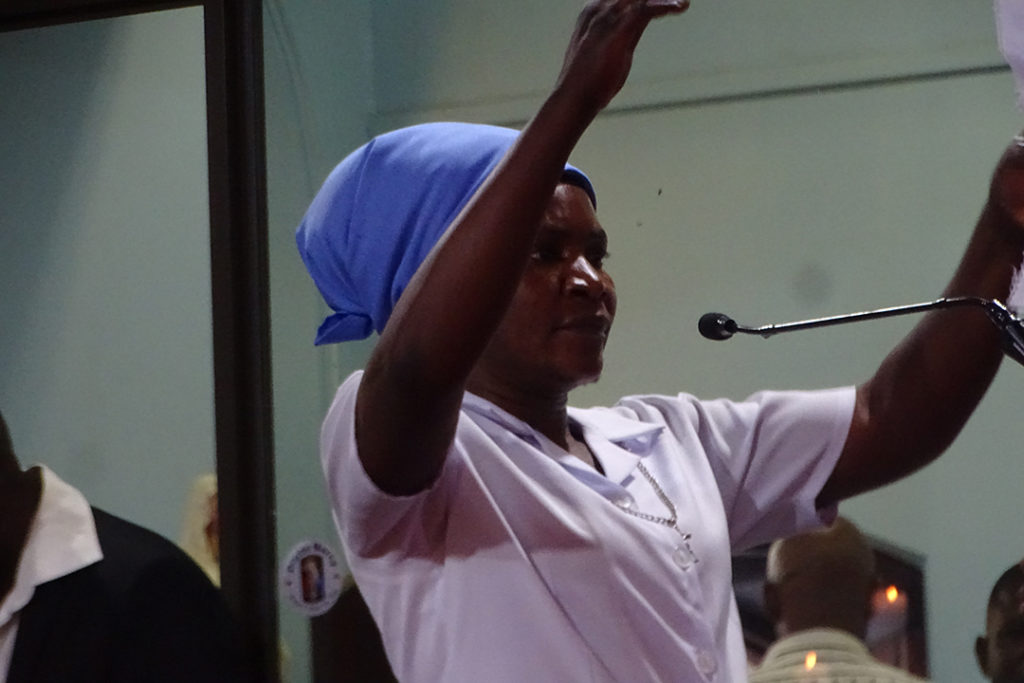
The reality of migrants and refugees is very much present in South Africa, particularly in Pretoria. In a pre-election time, are possible sprouts of xenophobia a genuine concern?
At the level of SACBC, we are trying to minister pastorally and reach out not only to migrants—we have a well-established office for them—but also to locals. We often forget that we are in one of the most unequal countries in the world and that those subjected to poverty are not just migrants, but also local people. It is important to uphold and minister to both.
Xenophobia must be put into context instead of sensationalising it, as often portrayed in the media, giving the impression that the entire South African society fears and hates migrants. Nothing could be far from that. Immigrants who come as professionals live in our suburbs are part of our parish communities and some of them are their leaders. South Africa has a long history of migrants from neighbouring countries like Malawi, Zimbabwe, and Mozambique coming to work in the mines and settling here. They have intermarried and have families here.
If synodality becomes a reality, then the way we train priests must change.
Xenophobic eruptions occur because poor people squabble over scarce resources. Desperate migrants settle in informal settlements, in places such as Diepsloot, among poor South Africans who are already deprived of proper services. They have this added community, and strife arises between them, resulting in conflict. Why doesn’t xenophobia happen in Sandton, Centurion or in the CBD where there are so many people from other countries? We need to look at the whole context. Sometimes employers in restaurants and farms play the locals against migrants because locals are unionized and they demand minimum wages. Employers often favour migrants who accept whatever is given to them and are easy to exploit. We need to approach this phenomenon with more discernment because it is a very complex reality and its complexity is not always taken into account.
Way forward towards October 2024 for the Assembly?
The Episcopal Conferences must continue consulting the faithful about the outcome of this assembly, even if it might not be widespread consultation as in the first phase because of limited time constraints. The reflection must be more focused now on certain proposals and questions to be explored further. In the next synodal assembly, there will be focused questions informed by feedback from local churches. The synod secretariat in Rome will issue new questions that could guide our reflections. By July, our contributions will be sent back and another Instrumentum laboris will be prepared which will lead to some pointed recommendations and proposals to the Holy Father. Then, he will prepare his Apostolic exhortation and that is where I think the process will end.

